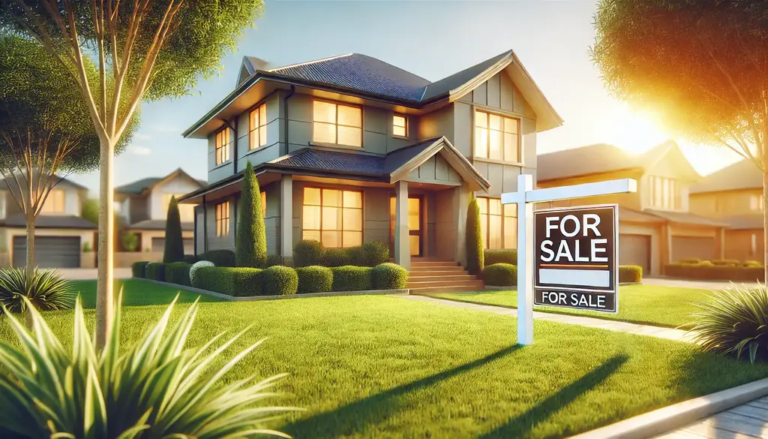
When it comes to selling your home quickly, setting the right price is one of the most important factors in achieving success. Many motivated sellers face the challenge of striking a balance between a price that will attract potential buyers and one that will also ensure they get the best possible return on their property. Competitive pricing is key to making sure that your home sells quickly and for the right amount.
Whether you’re looking to sell your house fast due to relocation, financial hardship, or any other reason, our buying process/guideline for sell your house/hassle-free process can help you get your home sold fast while ensuring that you don’t leave money on the table. In this blog, we’ll cover some pricing tips that will help you avoid common mistakes and set the right price for a quick sale in today’s real estate market.
The Importance of Competitive Pricing in a Fast Sale
One of the most crucial factors in quick sale success is competitive pricing. Setting the right price for your home is not just about making the sale; it’s about setting yourself up to attract the maximum number of buyers. Pricing your home correctly is a selling strategy that will help generate interest right from the start. If you price your home too high, it will likely scare off potential buyers. On the other hand, pricing too low might lead to a fast sale, but it could also result in leaving money on the table.
Understanding the real estate market and pricing your home based on current trends and buyer demand is essential. Buyer preferences play a significant role in this process, and by making sure that your home is priced competitively, you’ll be positioning yourself to attract motivated buyers who are serious about making an offer.
How to Price Your Home Based on Market Conditions
In order to price your home correctly, you need to consider the real estate market conditions in your area. The market can vary depending on your location, time of year, and the current supply and demand for homes. In a seller’s market, where there are fewer homes for sale and more buyers, you might be able to price your home a little higher. However, in a buyer’s market, where inventory is high and competition among sellers is fierce, pricing too high may prevent your home from selling.
By conducting a market analysis, you can better understand the pricing trends in your area and compare similar homes to determine where your property stands in the current market. Factors such as location, property size, age, and condition can also impact home value. By pricing competitively based on this information, you can set yourself up for a faster sale and avoid the pitfalls of overpricing or underpricing.
Pricing Your Home to Reflect Its Value
When it comes to home value, it’s important to set a price that reflects what your property is worth. Many sellers make the mistake of listing their home based on sentimental value or the amount they’ve invested in upgrades. While these factors are important, they should not be the sole determinant of your home’s asking price.
Instead, you should look at the property value in relation to recent sales of similar homes in your area. By aligning your asking price with the market analysis of comparable properties, you’ll be able to attract buyers who are willing to pay a fair price for your home. Pricing your home too high can result in a longer listing period, leading to price reductions and potentially a lower sale price than if you had priced it correctly from the start.
Setting a Competitive Price That Appeals to Buyers
Setting a competitive price isn’t just about looking at similar homes in your neighborhood. It’s also about understanding the buyer preferences in your area. For example, if buyers are looking for homes with updated kitchens or energy-efficient features, you may be able to justify a higher price for a home that has these features. However, if your home is outdated or needs repairs, you’ll need to price it accordingly.
When crafting your selling strategy, consider what buyers in your area are looking for and price your home accordingly. If your property is well-maintained and updated, you may be able to price higher, whereas if repairs are needed, you might want to adjust the price to attract buyers who are willing to take on some work.
Financial Considerations When Pricing Your Home
Financial considerations are another important aspect to keep in mind when pricing your home. If you need to sell quickly due to financial circumstances, you may need to price your home slightly below market value to attract buyers quickly. This can help you generate interest and even create a bidding war, which could push the final sale price closer to your original asking price.
However, if you’re not in a rush to sell, you can afford to price your home more strategically, ensuring that it aligns with the market analysis and buyer demand. Be sure to weigh the costs of pricing too high or too low and how that may impact the timeline for your sale.
Common Questions About Competitive Pricing for Quick Home Sales
Before you set a price for your home, it’s important to have answers to the most common questions sellers face when pricing their property. Here are five questions that can help guide your decision-making process:
1. How do I determine the right price for my home?
To determine the right price for your home, start by looking at similar properties that have recently sold in your area. A market analysis will give you a sense of what buyers are willing to pay for homes like yours.
2. How do I know if my home is priced too high?
If your home isn’t receiving much interest or showings, it may be priced too high. Overpricing can lead to fewer buyers and longer listing periods, so if this is happening, it might be time to adjust the price.
3. How can I attract buyers while selling quickly?
Pricing your home competitively from the beginning is the best way to attract buyers quickly. Additionally, highlighting your home’s best features and ensuring it’s well-maintained can make it more appealing to potential buyers.
4. Should I price my home higher to leave room for negotiation?
While leaving room for negotiation might seem like a good idea, overpricing can actually discourage buyers from even making an offer. It’s better to set a competitive price and encourage offers from motivated buyers.
5. How can I adjust the price if my home isn’t selling?
If your home isn’t selling after being on the market for a while, it might be time to adjust the price. Make sure your price is aligned with the current market conditions and comparable homes in your area.
Sell Your Home Fast with Nahas Realty
At Nahas Realty, we understand how important it is to price your home competitively for a quick sale. Our team of experts can guide you through the process of setting the right price to ensure that your home sells quickly while still achieving a fair return. We specialize in helping motivated sellers navigate the selling process with ease, providing cash offers that close fast.
If you’re ready to sell your house and get a cash offer, visit usto learn more about our buying process and how we can help you sell quickly and for the right price. Let us help you make a competitive pricing strategy that works for your home and your needs.



